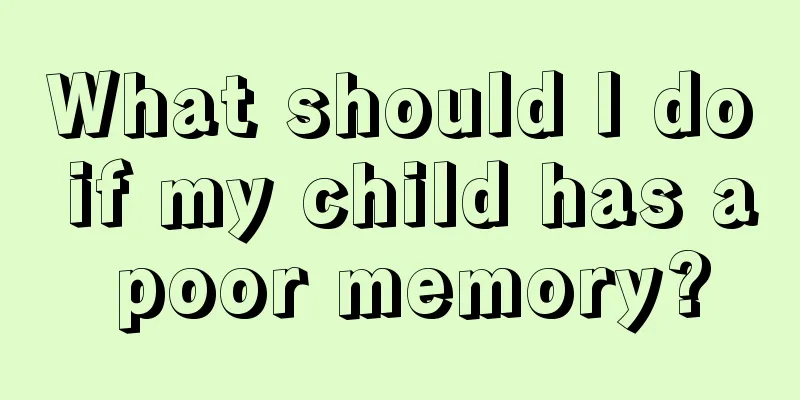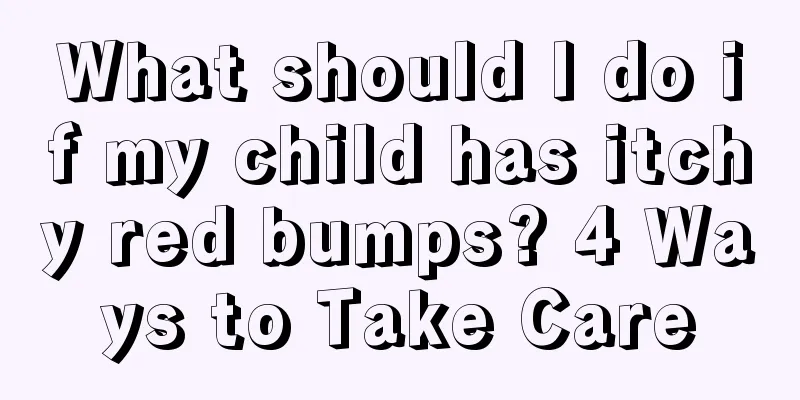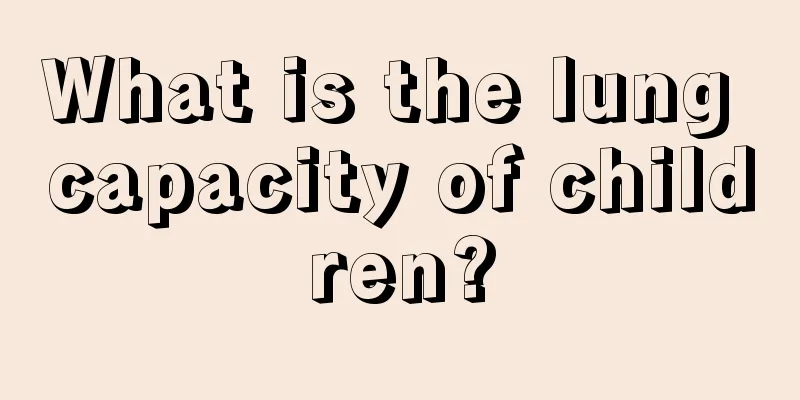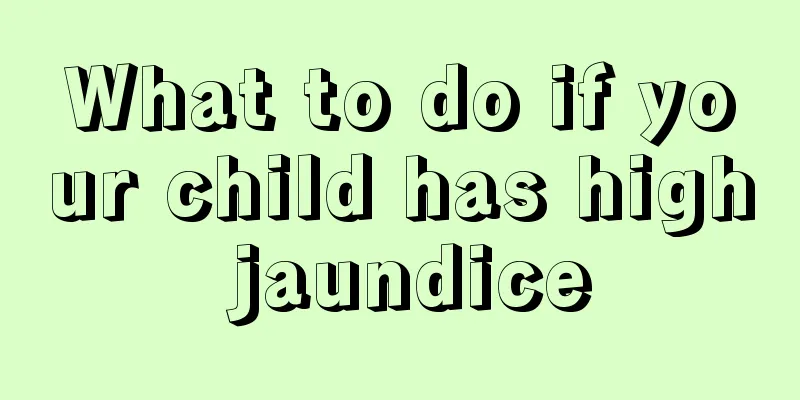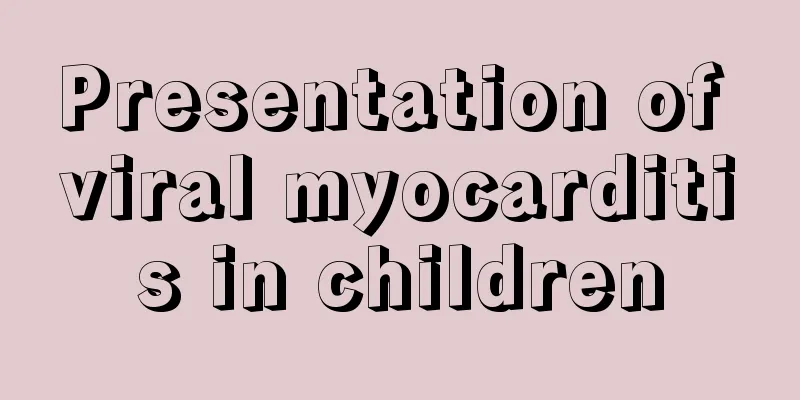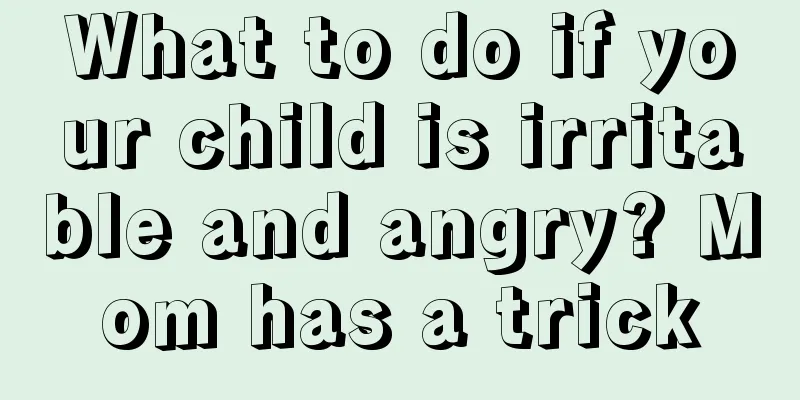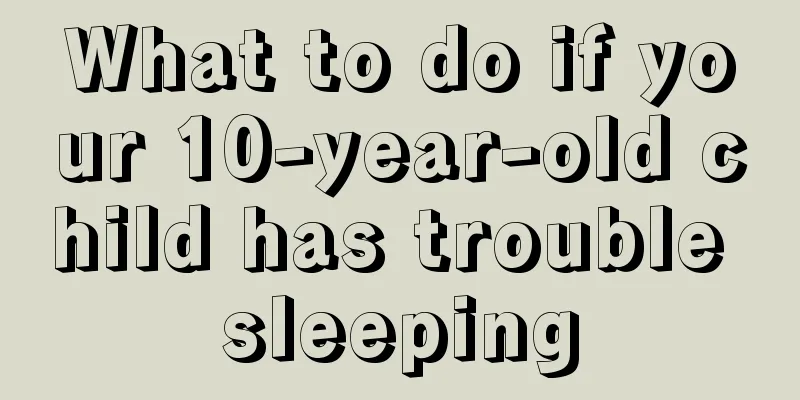What should I do if my baby still has a stuffy nose after recovering from a cold?
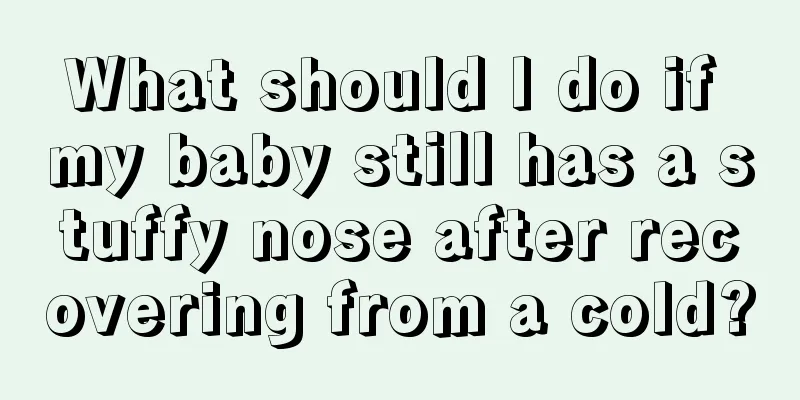
|
Children are the focus of protection in every family. Especially in an era when most families are only children, a baby’s growth can be said to be the result of everyone’s love and care. From childhood to adulthood, the child has been spoiled by his elders, so when the baby falls ill, everyone in the family becomes anxious. They are also afraid that some old methods will not work, so they just know to send the baby to the hospital. Colds are the most common disease for babies, and even after a cold is cured, it is often accompanied by nasal congestion. Many young parents will become anxious and worried at this time. What if the baby still wants to compete after catching a cold? A magic way to relieve a baby's stuffy nose The nose is the main channel for babies to breathe fresh air. Once it is blocked, it will make it difficult for the baby to breathe, so pay more attention to the baby's nose and do not let his breathing passage be blocked! If you find that your child has a stuffy nose, don’t panic. Use the methods we teach you to help your child clear his or her nose! Young parents often find that their baby's nose is blocked. If the symptoms are mild, it will just make some noise when breathing. Severe symptoms will affect the baby's breathing, especially when feeding. When feeding, the baby may cry and choke easily, making feeding difficult; the baby may even become irritable and cry incessantly, seriously affecting the baby's sleep. In some severe cases, the baby may have obvious breathing difficulties and need to be sent to the hospital. Therefore, it is very necessary to understand the relevant knowledge about baby nasal congestion. Physiological characteristics of infant respiratory tract Newborn babies have many physiological characteristics that are different from those of older children and adults. The main characteristic of the respiratory system is that the nasal cavity is not yet fully developed. The nasal cavity of a newborn is short, the nasal passages are narrow, and there is almost no inferior nasal passage. The nasal mucosa is rich in blood vessels and lymphatic vessels. Therefore, after being stimulated by external factors, the nasal mucosa is prone to congestion and swelling, making the narrow nasal cavity even narrower. The nasal mucosa is thin and the mucous glands secrete insufficiently, making inflammation very likely to occur. Newborn babies generally do not actively open their mouths to breathe. Once the nasal passages are narrowed, it is particularly easy to cause breathing difficulties, especially when breastfeeding, because the nasal cavity and oral cavity are blocked at the same time, the symptoms will be more obvious. A guide to caring for babies with stuffy noses Although the nasal passages of young babies are relatively narrow, they generally do not experience obvious nasal congestion or difficulty breathing. In most cases, a baby's stuffy nose is not a serious problem, but if the baby always makes a humming sound when breathing, and even affects his sleep and feeding, it is still necessary for parents to pay attention to and deal with it. When a child has symptoms of nasal congestion, parents should first try to find out the cause of the nasal congestion and not rush to abuse medication. When the following conditions exist, nasal congestion symptoms will be more obvious and may even affect the baby's feeding and sleep. Life is full of great wisdom. In fact, there are many small ways to prevent children from having nasal congestion after they recover from a cold. However, because today's young parents have less and less life experience, they often just go to the hospital. But if the baby uses too much medicine, the baby will produce antibodies, so it is better to use less medicine for the baby. |
<<: How to train your baby to roll over
>>: Treatment for 3-year-old baby who keeps blinking
Recommend
Improper treatment of convulsions in children can be fatal!
Nowadays, careful parents will find that many chi...
Redness around the baby's eyes
Everyone knows that redness around the eyes of ba...
Are sit-ups OK for kids?
It is good for people's health to do exercise...
What is causing the humming sound in my baby's chest?
In daily life, parents will be very worried if th...
Baby's lips turn purple when crying
If a child's lips turn purple when crying, pa...
How to solve the problem of baby's heavy breathing
When parents are taking care of their babies, the...
Symptoms of mild brain damage in infants
Nowadays we often hear about brain injuries, but ...
Why does the baby's soles sweat?
Although the baby's body temperature is gener...
Who determines a child's IQ?
We all hope to have a lovely child. According to ...
How much vision is considered myopia in children
Vision is very important for an individual. If a ...
What causes forehead pain in children?
Forehead pain in children is also a very common p...
What to do if children have recurrent tonsillitis and fever
Tonsillitis can occur in people of any age. Child...
Causes of hypoglycemia in children
Children's physical health is an issue that p...
Common symptoms, closing time and care of anterior fontanelle in infants
People who have been parents will know that after...
What should I do if my child has poor athletic ability?
Exercise is a human instinct. People exercise eve...
